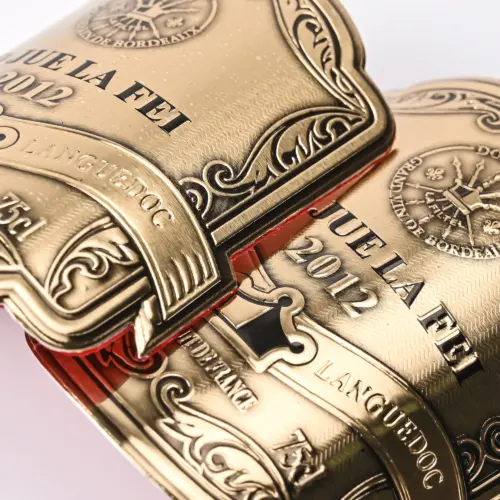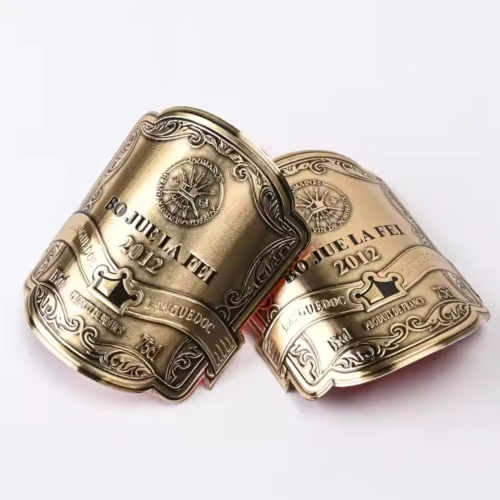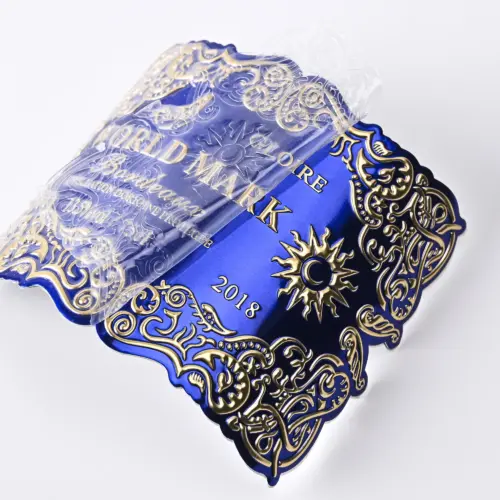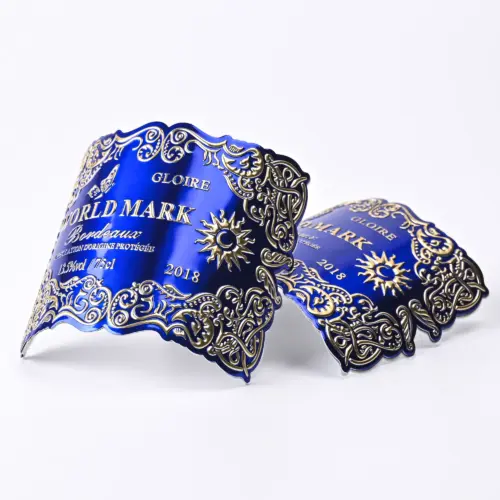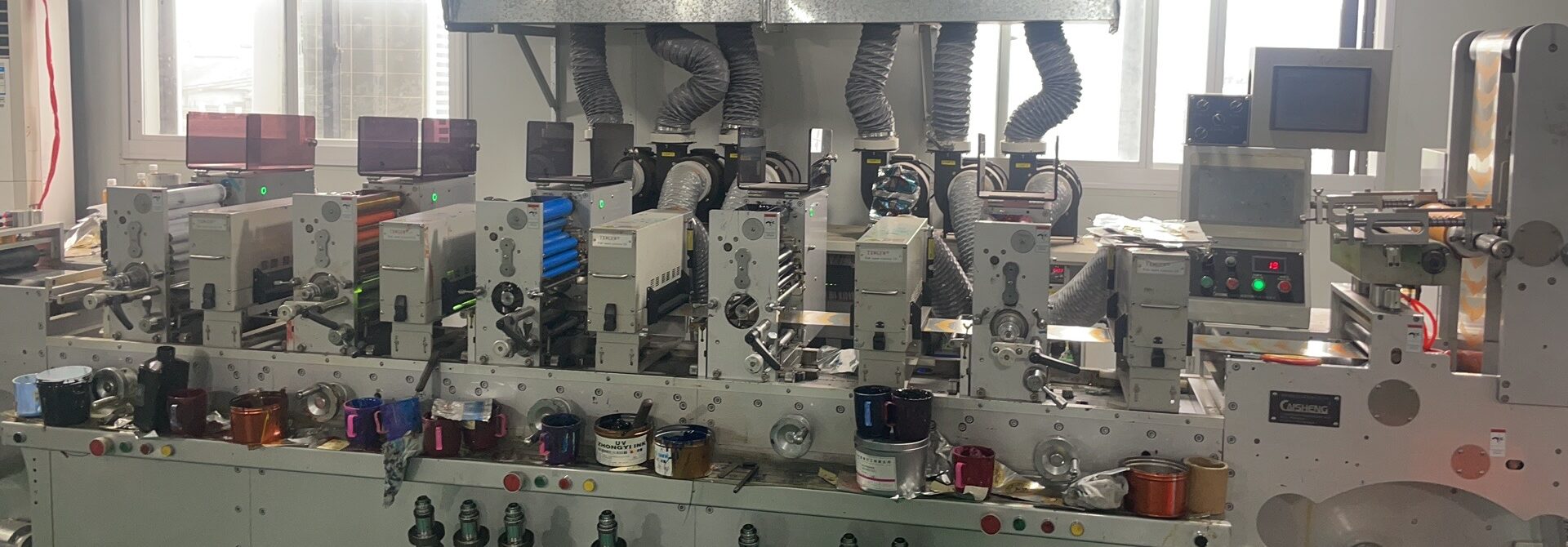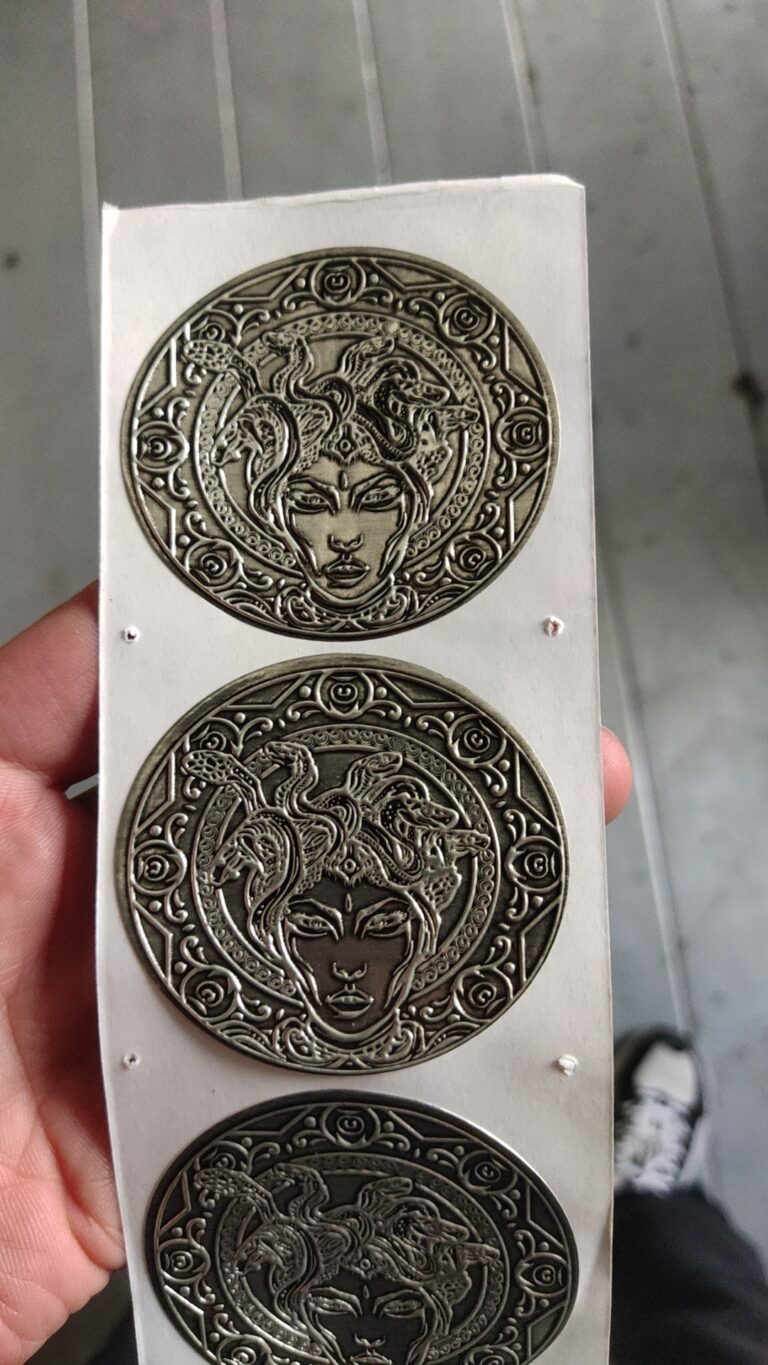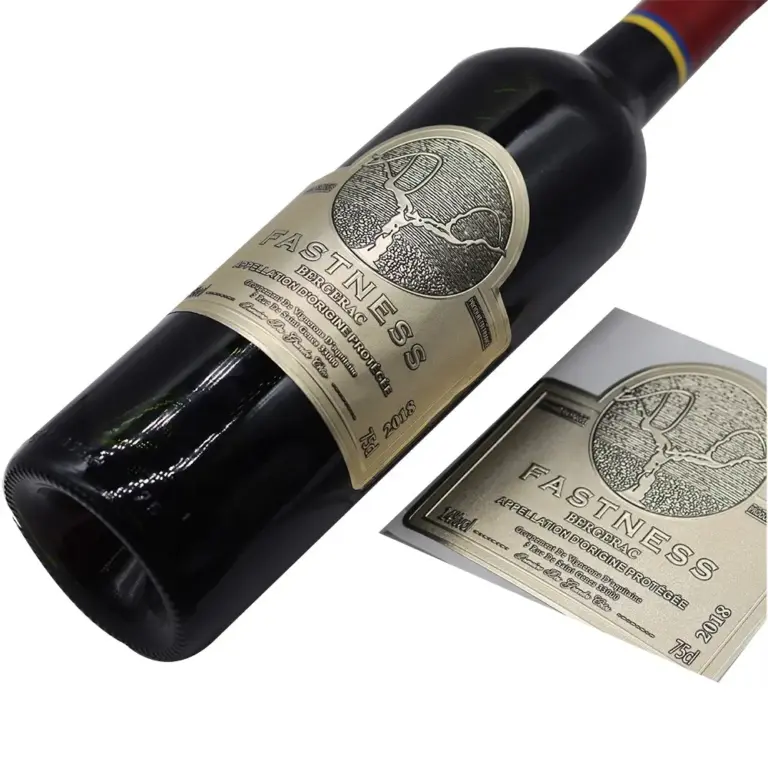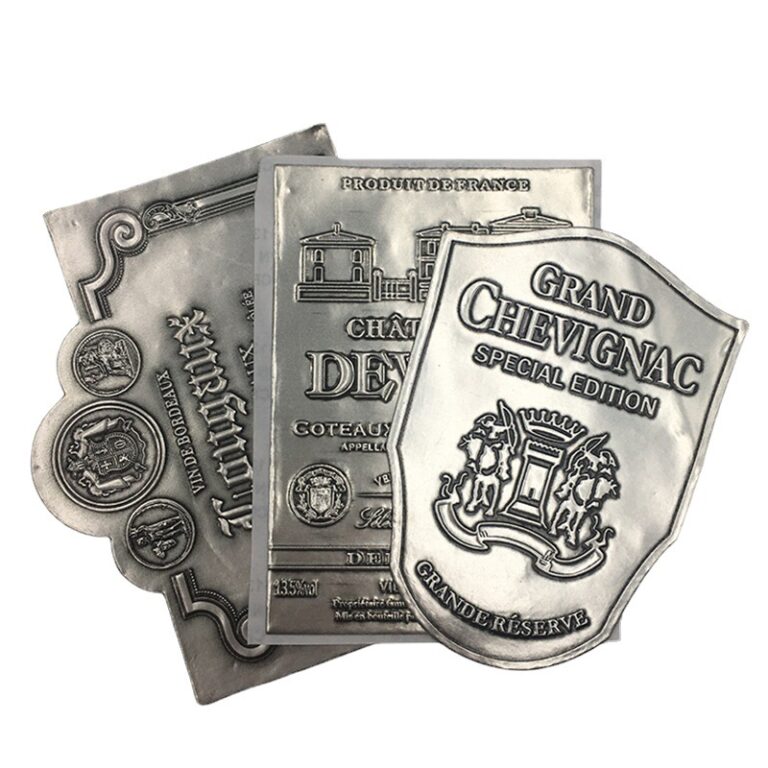Get A Quote Now!
In an industry where brand identity, shelf appeal, and storytelling are everything, boutique wineries are constantly searching for ways to stand out. More and more of them are turning to metal wine labels—not just for aesthetics, but for the lasting impression they leave on customers.
Here’s why this growing trend is reshaping premium wine branding.
1. First Impressions Matter—Metal Labels Demand Attention
In a sea of paper-labeled bottles, a metal label catches the eye instantly:
-
Reflective shine or textured surfaces grab attention from the shelf.
-
3D embossed logos add dimension and depth.
-
Uncommon materials signal that this isn’t a mass-market product.
Boutique wineries use this visual distinction to:
-
Justify premium pricing
-
Attract curious, quality-conscious consumers
-
Build stronger brand recall
2. Durability That Matches the Wine’s Legacy
Great wine gets better with age—and so should the label.
Metal labels don’t fade, peel, or wrinkle over time, unlike traditional paper labels that are vulnerable to:
-
Moisture
-
Temperature changes
-
Wear and tear during shipping or storage
For boutique producers who sell limited runs or cellar-worthy vintages, this permanence is a perfect match.
3. Storytelling Through Craftsmanship
Small-batch wineries often focus on heritage, craftsmanship, and unique varietals. A metal label communicates that same care and artistry in visual form.
With options like:
-
Antique finishes to evoke tradition
-
Laser-etched details to mirror terroir maps or vineyard emblems
-
Custom shapes like crests, shields, or vines
The label becomes an extension of the story in the bottle.
4. A Higher Perceived Value—Without Huge Cost Increases
While metal labels cost more than standard paper, the ROI is surprisingly high for boutique wineries:
-
Customers associate the bottle with luxury.
-
It becomes gift-worthy without needing elaborate packaging.
-
It can boost direct-to-consumer sales through emotional connection.
And thanks to modern manufacturing methods, MOQs are lower, and cost-effective materials like aluminum make metal labeling accessible for smaller brands.
5. Sustainability Matters to Premium Buyers
Many boutique wineries embrace sustainability—and metal labels support that mission.
-
Recyclable: Metals like aluminum and tin are easily recyclable.
-
Reusability: Consumers often keep metal-labeled bottles as decor or souvenirs.
-
Less waste: No glue-soaked paper backing to discard.
This aligns with eco-conscious wine drinkers and enhances brand reputation.
Final Thoughts
For boutique wineries that craft every bottle with intention, a metal label reinforces the message of care, authenticity, and quality. It tells consumers: This wine is special. This story is worth holding onto.
Ready to Elevate Your Brand?
🍷 Get a free consultation or sample kit here
🎨 Work with our team to design your boutique wine’s perfect label
